The zoning attorneys of Miller, Miller & Canby are experienced in securing land use approvals for all types of commercial and residential real estate projects. We routinely represent clients’ interests in the drafting of area master and sector plans and in the formulation of governmental policy expressed in such documents as the subdivision staging policy, the adequate public facilities ordinance and impact fee legislation.
Consider MM&C to help you in these Zoning Law matters:
- Local Zoning Map Amendments
- Special Exceptions
- Sign Variances
- Conditional Use Permits
- Zoning Ordinance Text Amendments
- Historic Designation
- Historic Work Permits
- Parking Waivers
- Nonconforming Use Approvals
- Due Diligence Analysis
- Zoning Opinion Letters
- Administrative Appeals
- Telecommunications Zoning and Infrastructure Development
- Conditional Uses
- Building Permits
- Comprehensive Master Plans
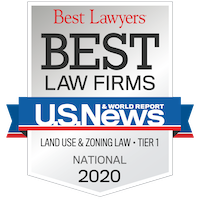
U.S. News – Best Lawyers® has awarded Miller, Miller & Canby a 2020 First Tier National ranking for Land Use and Zoning Law.
Rankings are based on a rigorous evaluation process that includes the collection of client and lawyer evaluations, peer review from leading attorneys in their field, and review of additional information provided by law firms as part of the formal submission process. read more →
Testimonials
ZONING FAQS
-
How do property owners best position their property when a new master plan or sector plan is scheduled to commence in their neighborhood?
A master or sector plan is a published document, approved by the County Council, which establishes recommendations on how a neighborhood should develop both in the near term and far into the future. Once adopted, the plan’s recommendations are relied upon by local government agencies in reviewing any land use matters in the plan’s study area for approximately the next 20 to 30 years. This long term horizon requires a landowner to strategically position a property to maximize the value, use, and future development potential.
Every property located in Montgomery County falls within a master plan or sector plan boundary, with more than 60 separate master or sector plans that combine to cover the entire County. Landowners should get involved early in the process for the opportunity to best position a property for the future. Currently, the Planning Department is drafting new plans for the Bethesda Central Business District, the Lyttonsville area where two Purple Line stations are planned to be located, the Sandy Spring Rural Village corridor, the White Oak Science Gateway, and the Aspen Hill neighborhood. The Planning Department will also begin work on the Westbard neighborhood shortly. Each of these planning initiatives will directly affect the future development potential (and therefore property value) for most landowners and businesses located within these areas.
The process commences with landowners receiving notice from the Planning Department that a new plan will be adopted that will include their property or neighborhood. Next, the Planning Department will host a series of “charrettes”, or meetings, where landowners, local businesses representatives, and design professionals from the public sector come together to create a vision for the future development pattern of the area. This vision will include the relationship of various land uses to transportation facilities, infrastructure projects, and services and amenities. The preliminary vision will also include the general locations for schools, libraries, and other public services, as well as the general locations within the neighborhood for more intense commercial or multifamily development in relation to the less dense townhouse or single-family living in the area. It is advisable for landowners within a master or sector plan boundary to attend the early charrette meetings hosted by the Planning Department to engage in the community’s vision for the area and convey any future development desires for a particular property. For example, if a landowner has a two-story commercially zoned property but thinks the land is suitable for a six-story mixed-use project with retail on the ground floor and multifamily on the upper levels, it is important for the landowner or his representative to raise the potential development idea during the visioning process so the Planning Department can consider the idea with the recommendations for the larger area.
Once the vision for the area progresses to a certain point, the Planning Department will issue more specific land use and zoning recommendations for each property within the master or sector plan boundaries. The zoning recommendations will set rigid density and height restrictions that cannot be waived once the master plan is adopted and its zoning categories are affixed to properties through a sectional map amendment. Additionally, the Planning Department will frequently draft specific site layout recommendations for notable properties in the plan area. While these site layout recommendations are theoretically illustrative and non-binding, layout recommendations contained in a plan can play a large role in the County’s development review process when a property is ultimately developed (even if development does not occur for many years after the master or sector plan is adopted). During the period when the Planning Department is devising final land use and zoning recommendations, it is advisable that landowners meet individually with Planning Department staff members to specifically discuss individual property recommendations. Staff of the Planning Department will generally work with landowners to help realize any future development goals for a property, even if development for the property is not anticipated for many years to come. Using the previous example, the landowner would meet with Planning Department Staff at this point in the process to determine the exact zoning category and height that will allow the mixed-use multifamily project to progress.
After the Planning Department’s final recommendations are complete, the Planning Board and County Council will hold public meetings to discuss the staff recommendations for the plan. Landowners and their representatives have the opportunity to testify before both the Planning Board and County Council regarding the Planning Staff recommendations. The latter hearing is a landowner’s final opportunity to position a property for a particular use, density, or height. The Council has the final authority to approve the master or sector plan recommendations. While the total time to adopt a master or sector plan can be up to two years after the process commences, it is advisable that the landowner or his legal counsel attend relevant meetings throughout the entire process to not miss the opportunity to best position land for the future.
Miller, Miller & Canby has represented landowners and businesses in master planning and land development processes for more than 75 years. Please feel free to contact the land use attorneys with Miller, Miller and Canby for any master plan or other zoning-related assistance. -
What has happened to “special exceptions” in Montgomery County? What is a “conditional use” approval and how does it differ from a “special exception”?
The terms “conditional use” and “special exception” are interchangeable – they both refer to the same type of land use approval. A conditional use/ special exception is a use that has been legislatively predetermined to be conditionally compatible with land uses that are permitted by right in a particular zone provided a finding is made that certain statutory criteria (conditions) governing the use are satisfied. In other words, the use is presumptively valid and is permissible as long as certain prescribed conditions are satisfied. Of course, not all conditional uses are permitted in all zones and the conditions that must be satisfied vary depending upon the use and, in some cases, the zone.
Montgomery County has historically referred to this type of use as a “special exception”. However, the term “special exception” has led to some misunderstanding among those unfamiliar with zoning law who have mistakenly assumed that a special exception use is a use out of the ordinary, otherwise prohibited in a particular zone, and is being approved under special circumstances as an exception to the law. To paraphrase the former Hearing Examiner and Planning Board Chairman, the term “special exception” is a misnomer because the use is neither special, nor an exception. Accordingly, as part of the recent rewrite of the Montgomery County Zoning Ordinance, the term “conditional use” has been substituted for the term “special exception” to better clarify that these uses are, indeed, permissible uses provided that certain prescribed conditions are satisfied.
There have also been other changes made to the Zoning Ordinance pertaining to conditional uses. For instance, some of the prior special exception categories have been consolidated into new conditional use categories in an effort to provide consistency and to simplify the Ordinance; other uses have been converted to a new category – “Limited uses” – or have been altogether eliminated as in the case of long outdated land uses categories. One important change is that the Hearing Examiner, not the Board of Appeals, will now become the final decision-maker in most conditional use cases.
Whatever the business use or the zone, it is important to determine in advance what, if any, zoning approvals will be required. No business owner wants to receive a notice of violation directing that it close down business operations because it lacks the necessary zoning approvals. Some of the more typical conditional uses include: animal boarding and care, veterinary offices, landscape contractors, group living (e.g., independent living facilities for seniors or persons with disabilities; residential care facilities), private educational institutions, child daycare,major home-based businesses, and major home health practitioners’ offices, but this is by no means an exhaustive list. Whether you intend to start a new business that requires conditional use approval, currently operate a special exception/conditional use that you intend to modify, or have discovered that your business operation is out of compliance with zoning regulations, obtaining legal advice is helpful in identifying zoning issues and working through the approval process.
Miller, Miller & Canby has represented businesses and property owners for over 75 years. Please feel free to contact the land use attorneys with Miller, Miller and Canby for any conditional use or other zoning-related assistance.
-
I am anxious for new construction to begin on my home but I just learned from my builder that I am going to need a variance because the house is one (1’) foot too close to the side yard property line. Is getting the variance going to be a big deal?
Quite possibly “yes” — getting a variance can be a “big deal”. When the Montgomery County Department of Permitting Services reviews a building permit application, it reviews the plans for new construction to determine whether all development standards are satisfied, including yard requirements. Every zone has different development standards which are listed in the Zoning Ordinance. These development standards include minimum front, rear, and side yard requirements, among others. If the setback from the street or from adjoining properties is less than the minimum setback for the zone in which the property is located, a variance from the strict application of the Zoning Ordinance is necessary.
Variances are granted by the Montgomery County Board of Appeals. This involves a formal application to the Board and a public hearing. As the applicant, you have a heavy burden of proof. First, you must prove that there are exceptional conditions peculiar to your property (perhaps an unusual shape) that make it uniquely different from other properties and that, by virtue of its unique characteristics, the strict application of the regulations would result in “peculiar or unusual practical difficulties” or “exceptional or undue hardship” upon you as the property owner. You must then prove that the variance you are requesting is the minimum variance that is necessary to overcome the exception conditions that make the variance necessary, that it can be granted without impairment to the master plan, and that it will not be detrimental to your neighbors’ use and enjoyment of their properties.
The Board of Appeals is very strict in its application of the law. Even if your neighbors are perfectly fine with your plans, you need the extra bedroom space for your growing family, or the interior floor plan simply works best if the new family room extends off one particular side of the house, those reasons, alone, are not sufficient justification for the Board to grant a variance. A carefully constructed argument that focuses on the statutory provisions is essential to win your case.
Miller, Miller & Canby has represented land owners and developers for over 75 years. Contact an MM&C zoning attorney if your property requires a variance.
Case Studies
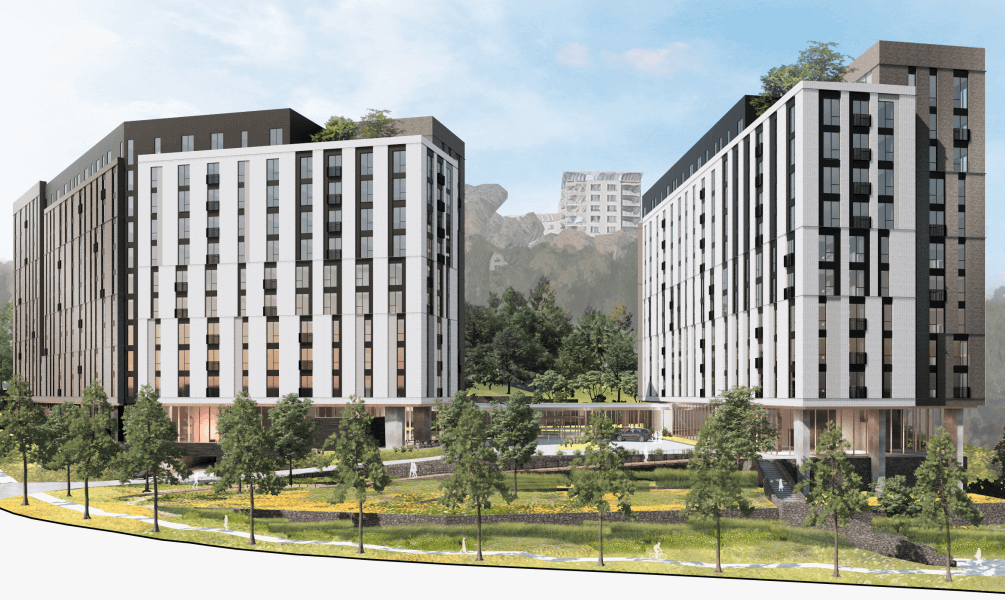
Multi-Family Residential Development / Pooks Hill
Project Scope: A multi-phase approval process, through two owners, Pooks Hill Residential will deliver 562 multi-family units within two ‘chevron’ shaped high-...read more →
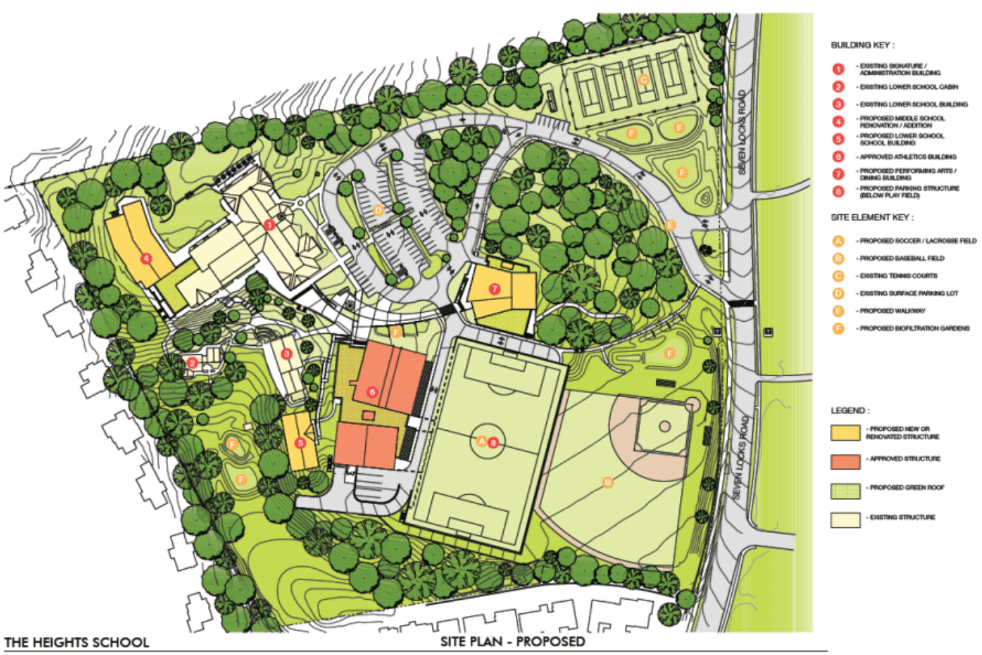
Private Schools / The Heights School
Project Scope: Special exception approval for a Campus Master Plan of a 20-acre private school.
Success: Soo Lee-Cho worked to successfully obtained initial approval of the school’s Campus Master Plan ...read more →
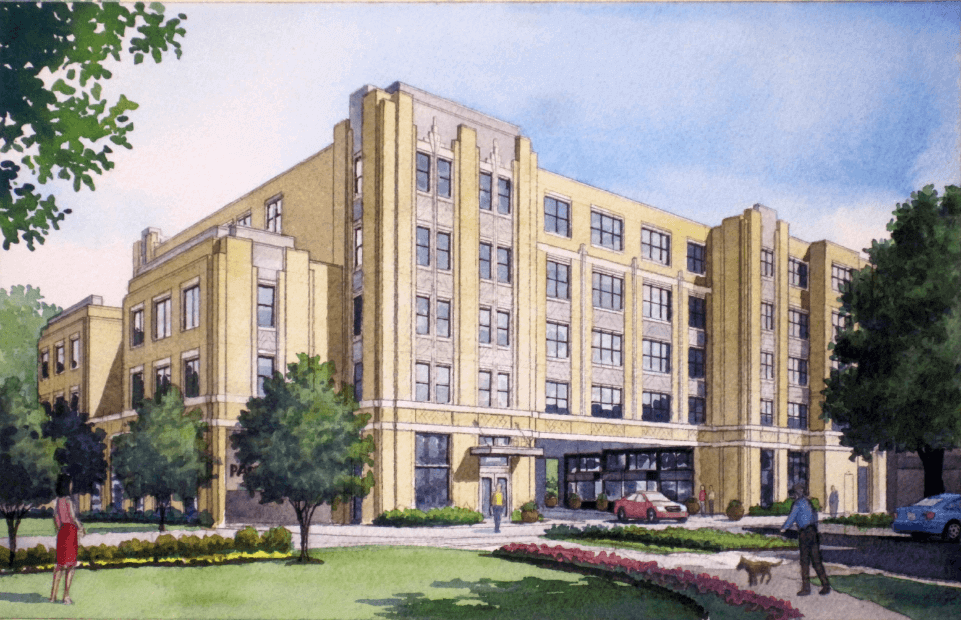
Mixed-Use Development / Wildwood Residential
Project Scope: Approval of a preliminary plan and site plan to create two lots and one private road to allow additional 106,000 square feet of development including ...read more →
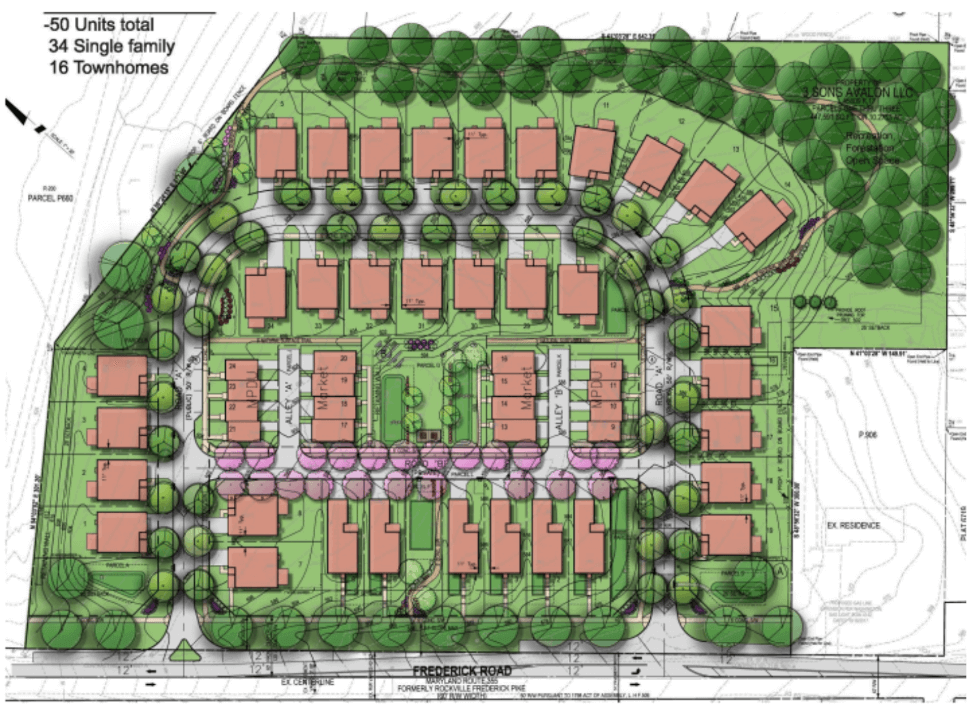
Subdivisions / Avalon Residential
Project Scope: Approval of rezoning application from residential zone to a floating townhouse zone and subsequent preliminary and site plans to permit 50 lots for a ...read more →
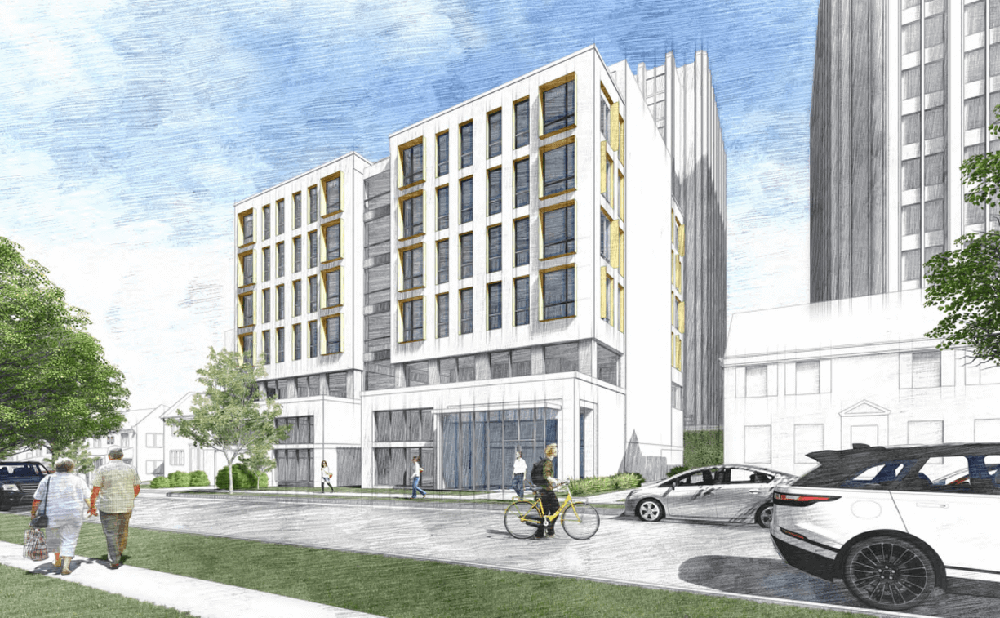
Multi-Family Residential Development / The Avondale
Project Scope: Lead the development design team through a consolidated sketch plan and preliminary plan approval to develop a 55,000 square foot multi-family ...read more →
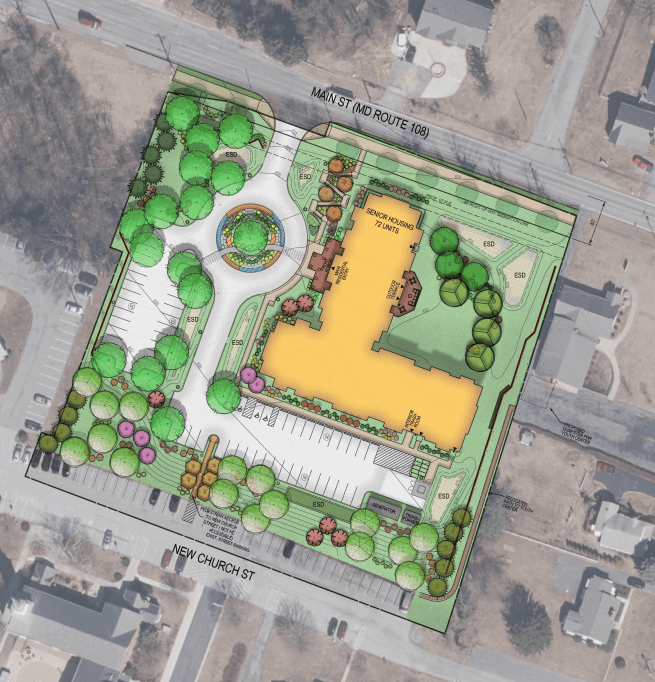
Residential Care Facilities / Victory Haven
Project Scope: Assist Victory Haven through multiple stages of development from initial real estate closing review through construction.
Success: The real estate and land use departments of Miller, Miller & Canby coordinated efforts to assist...read more →
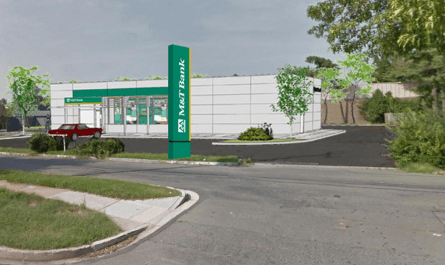
Commercial Development / Financial Institutions
Project Scope: Provide a full-range of services related to obtaining entitlement approvals for financial institutions such as Bank of America, M&T Bank, PNC Bank...read more →
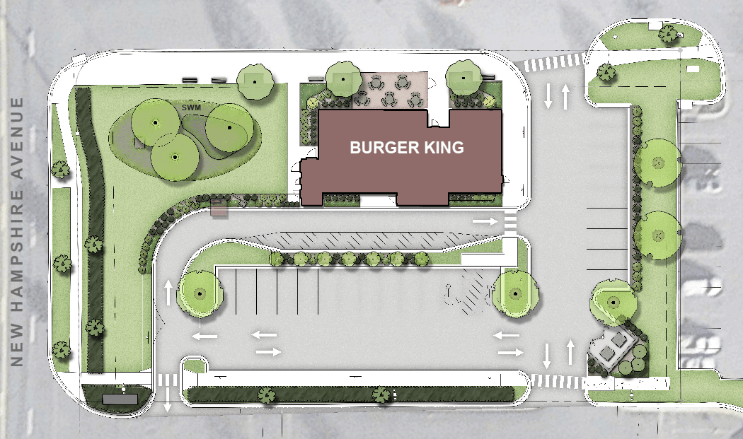
Commercial Development / Restaurants
Project Scope: Site Plan and Preliminary Plan applications for two fast food restaurants with drive-thru service.
Success: The land use department is familiar with the special considerations associated with a drive-thru ...read more →
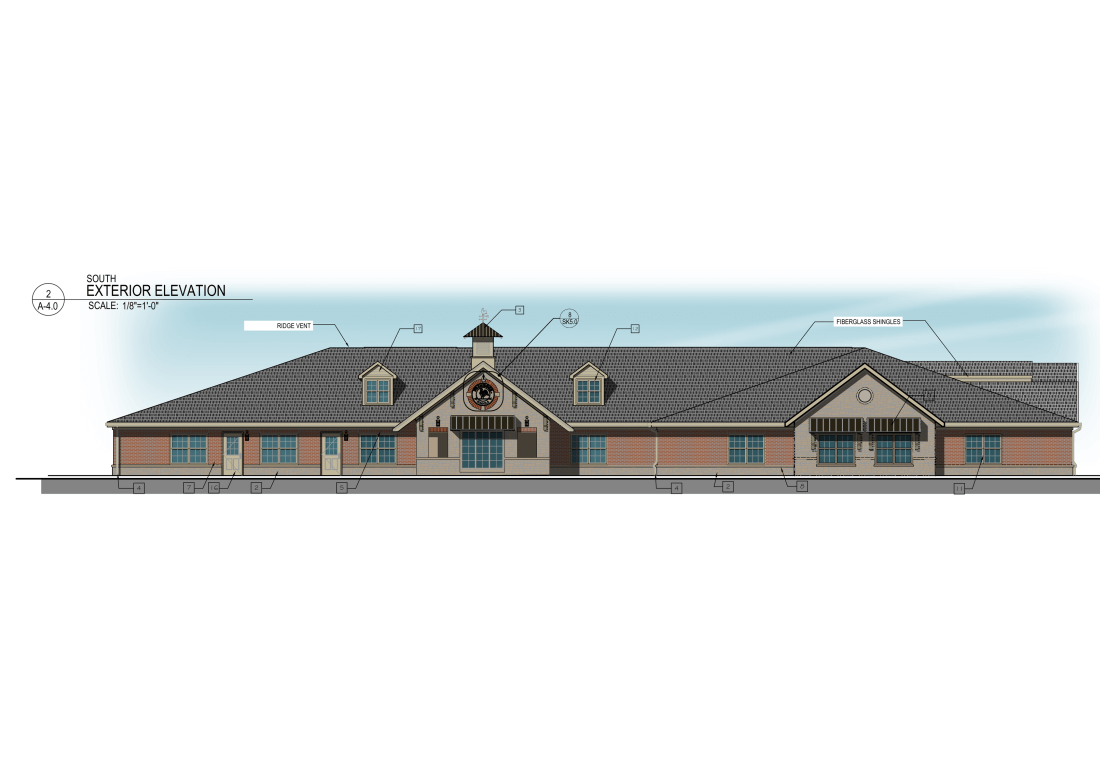
Civic and Institutional Uses / Day Cares
Project Scope: Use and Site Plan These day care centers provide a full range of care for infant to pre-kindergarten aged children.
Success: Recently, Miller, Miller & Canby has had the pleasure to assist Primrose Schools enter the ...read more →
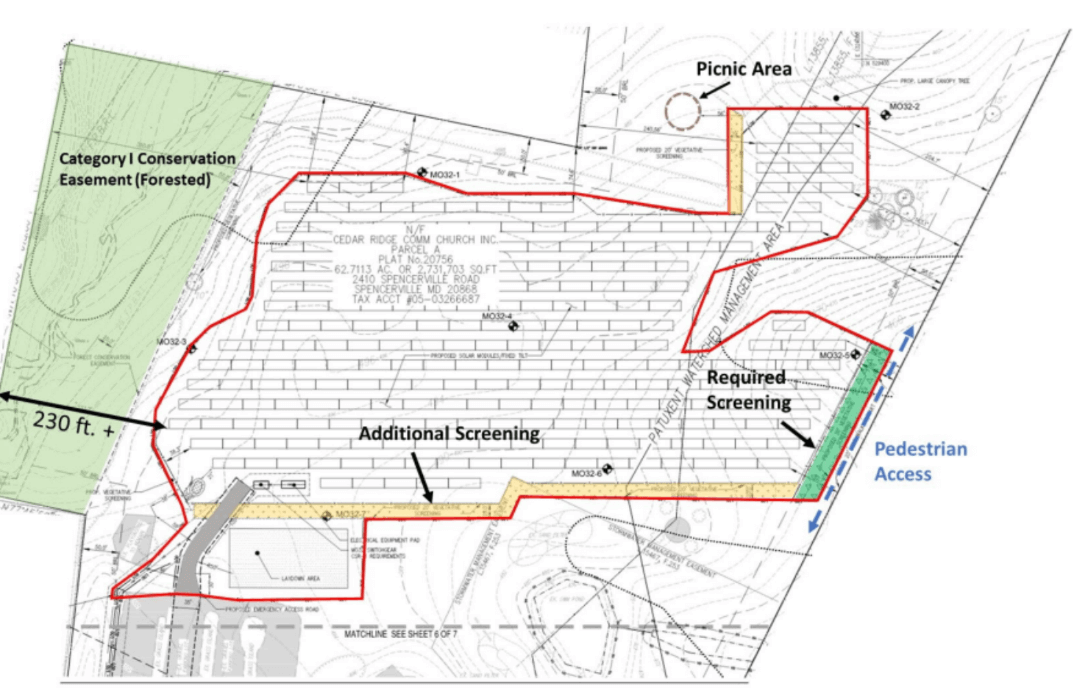
Solar Facilities / Cedar Ridge Community Solar
Project Scope: Obtain Historic Area Work Permit (HAWP) and Site Plan approval for a solar collection facility to be co-located on property occupied by a church, ...read more →
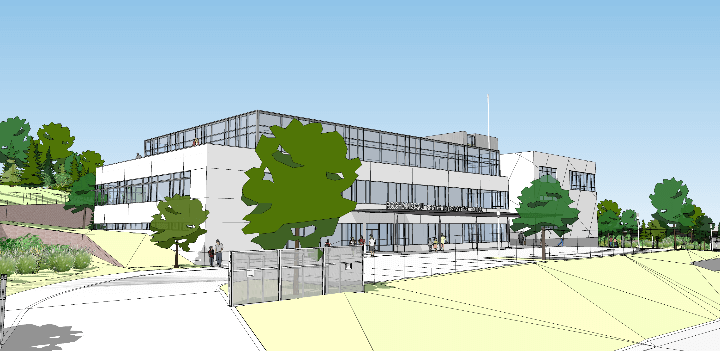
Private Schools / Rochambeau, The French International School
Project Scope: Amend existing special exception approval and process preliminary plan amendment for a change in use as well as participate in extensive negotiations ...read more →
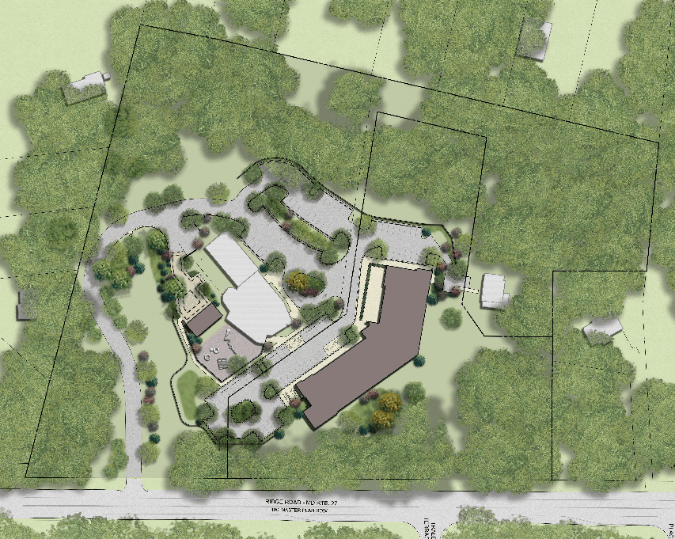
Residential Care Facilities / St. Anne’s
Project Scope: Create ownership parcel on site and obtain conditional use approval to allow development of a 76- unit independent senior housing facility on the same...read more →
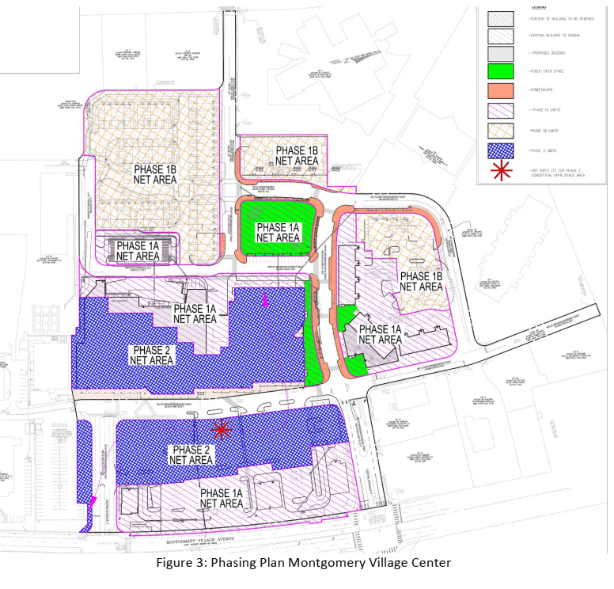
Mixed-Use Development / Montgomery Village Center
Project Scope: The renovation of a 18 acre mixed residential and commercial center in Montgomery Village Shopping Center. The project will renovate 118,000 square ...read more →
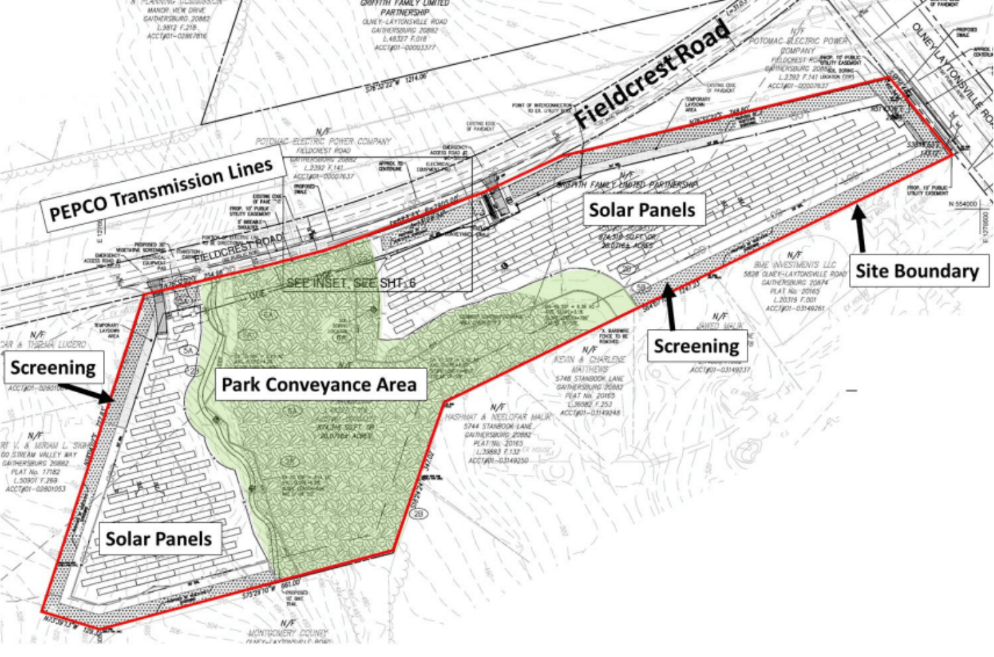
Solar Facilities / Fieldcrest Community Solar
Project Scope: Obtain approvals for a solar collection facility on a 20-acre property constrained by significant environmental features that required negotiation of ...read more →

Private Schools / The Bullis School
Project Scope: Support independent private school that serves ages kindergarten through 12th grade with challenging land use approvals and amendments for their 102 ...read more →
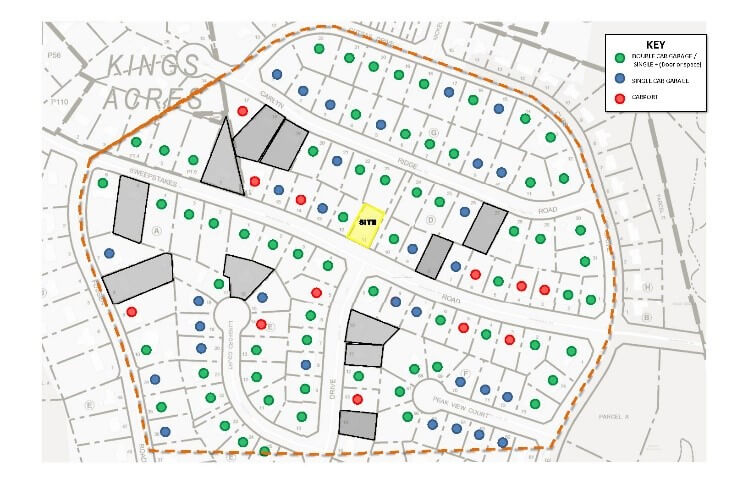
Variances / Residential Garage
Project Scope: Side yard setback to enlarge a garage to provide additional space for ingress and egress.
Success: By outlining the neighborhood pattern of the surrounding community, Soo Lee-Cho achieved a ...read more →
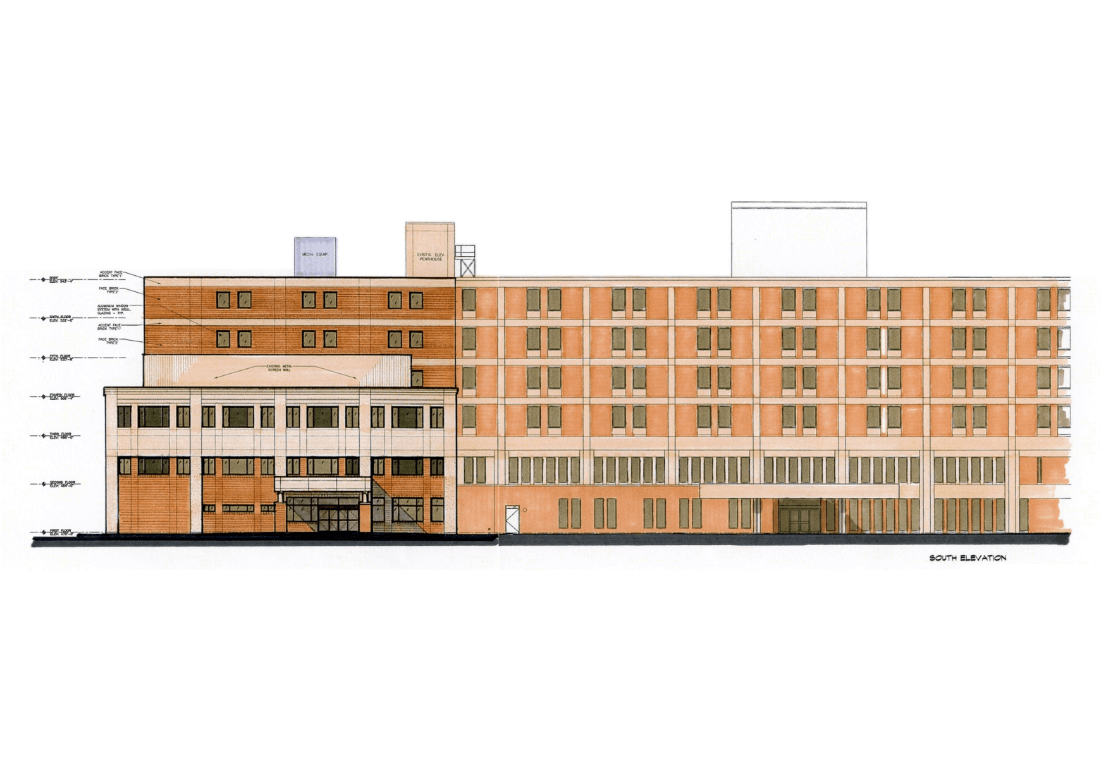
Civic and Institutional Uses / MedStar Montgomery Medical Center
Project Scope: Multiple reviews and approvals associated with a 50-year old special exception.
Success: Miller, Miller and Canby is proud of its many decades long relationship with one of the oldest ...read more →
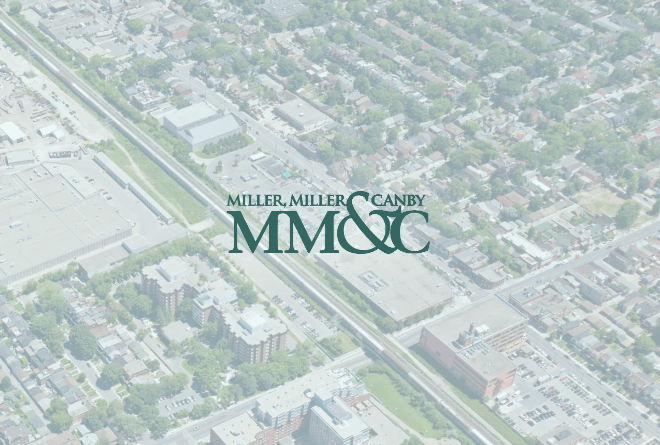
Telecommunications / Land Use Approval for Cell Tower
Issue: A longtime client of Miller, Miller & Canby attorney Sean P. Hughes, Esq. needed legal assistance to gain land use approval for a wireless ...read more →

Telecommunications / Zoning Approval for Out of State Wireless Company
Issue: An out of state wireless infrastructure development (cell tower) company retained Sean in mid-December. The client needed expedited and quality ...read more →

Commercial Development / Nonconforming Use
Issue: Clients, two large, professional Landscape Contracting firms, received civil citations alleging that the businesses did not have proper County ...read more →
MORE ON Land Use & Zoning
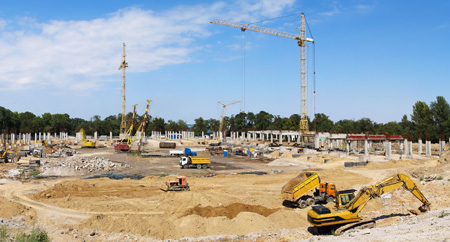
Land Use Planning & Land Development
Our land use attorneys provide informed and practical counseling to clients on a wide range of legal issues, regularly appearing before councils, commissions,...read more →
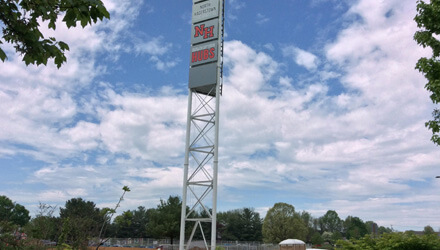
Telecommunications Law
The telecommunications law attorneys at Miller, Miller & Canby are experienced in Maryland, D.C. and Virginia and leading advocates on telecommunications issues...read more →
Latest News
-

Miller, Miller & Canby Sponsors Committee for Montgomery’s Annual Legislative Breakfast
Miller, Miller & Canby was proud to once again sponsor the Committee for Montgomery Legislative Breakfast, which took place on December 15 at the Bethesda...read more →
-
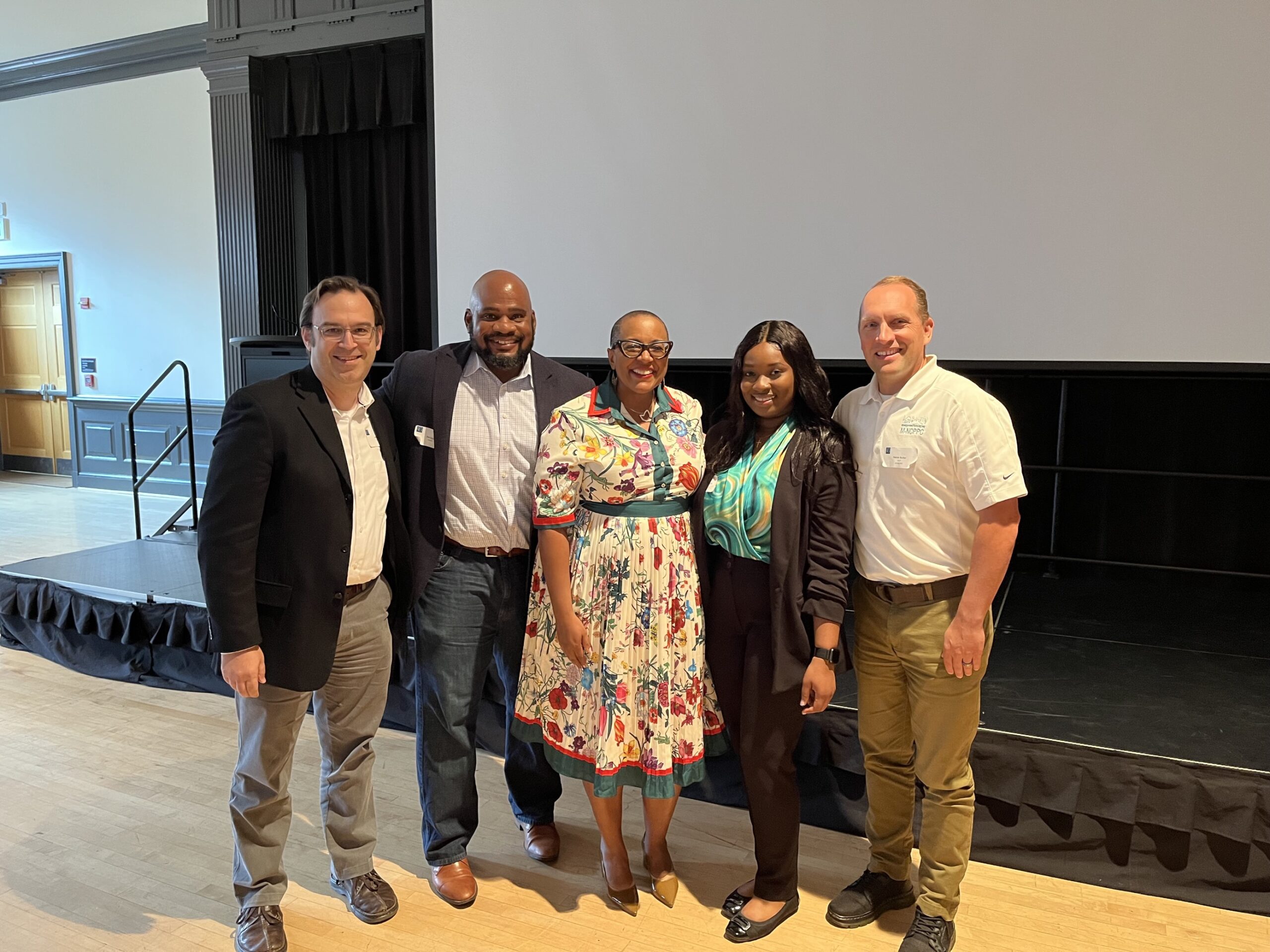
Miller, Miller & Canby’s Pamela Nkwantabisah Presents on Housing Affordability in DMV at the 2023 NCAC APA Conference
On October 5, the American Planning Association’s National Capital Area Chapter held its 2023 Annual Conference at the University of Maryland College Park. This...read more →
-
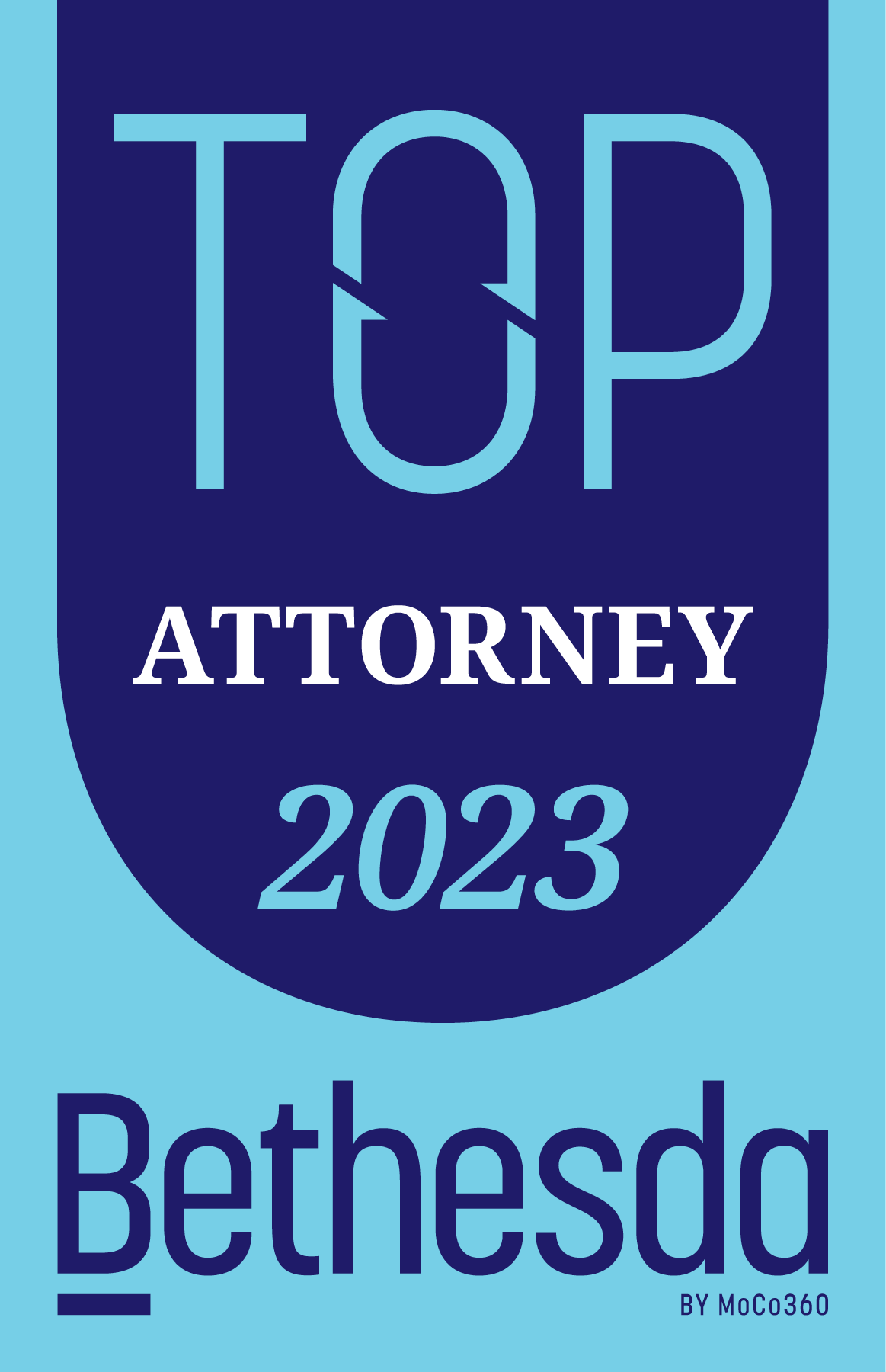
Bethesda Magazine Names Nine Miller, Miller & Canby Attorneys to 2023 “Top Attorneys” List
Bethesda Magazine has once again published its biennial list of Top Attorneys, surveying more than 1,700 attorneys who practice in Montgomery County and asking...read more →




